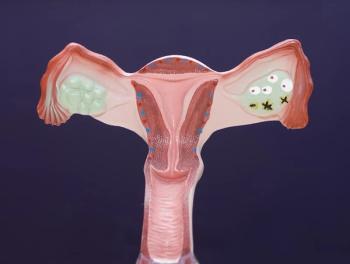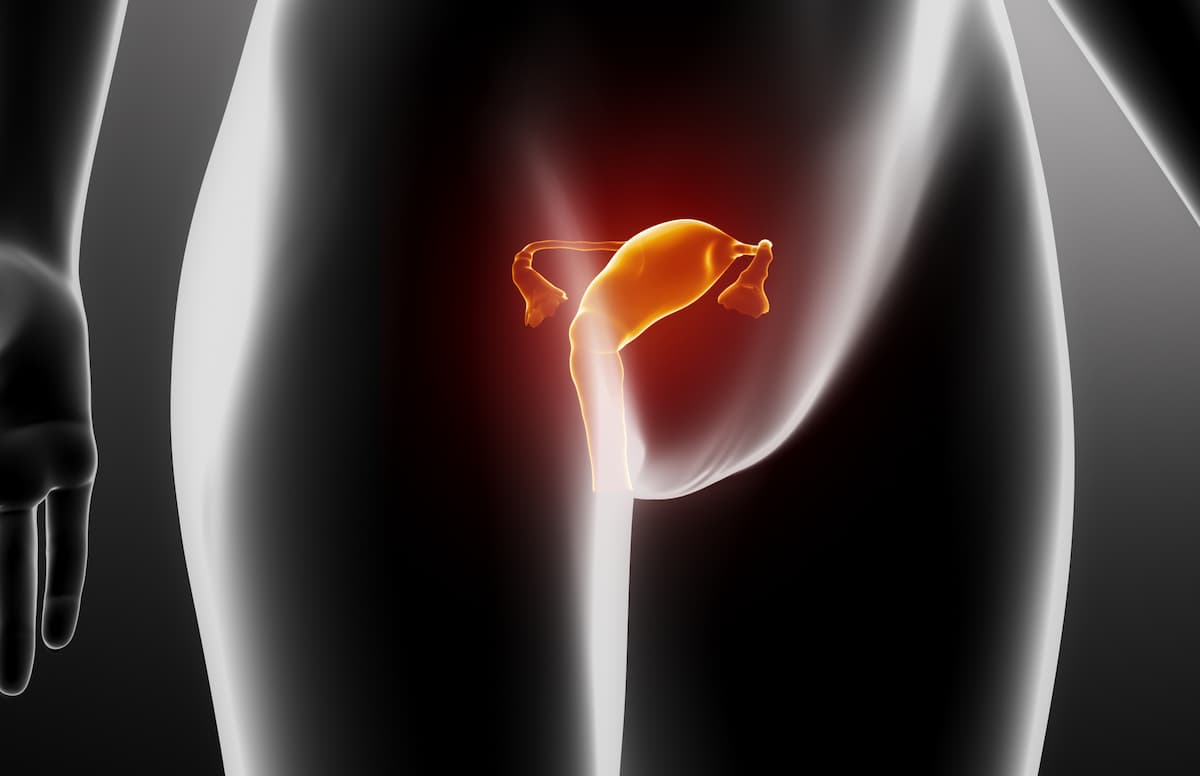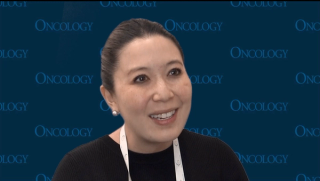
Ovarian Cancer
Latest News
Video Series

Latest Videos
Podcasts
CME Content
More News

BI-1808 plus pembrolizumab was safe and well-tolerated among patients with recurrent ovarian cancer.

Among 35 patients with ovarian cancer treated with an antibody-based combination, the overall response rate was 23%, with a clinical benefit rate of 31%.

Pooled analysis data from the phase 1 JSKN003-101 and phase 1/2 JSKN003-102 trials support the regulatory decision.

Fuzuloparib monotherapy and as a combination with apatinib improved PFS as maintenance therapy in patients with ovarian cancer harboring BRCA1/2 mutations.

Although both immune priming strategies numerically improved ORR and PFS vs olaparib monotherapy, the study was not powered for comparisons between arms.

The median PFS for patients with ovarian cancer who received niraparib maintenance in the real-world setting was 25.7 months.

Although the study was underpowered due to a small sample size, nonsignificant improvements in functional and social well-being occurred with MOST-S26.

Phase 3 data demonstrate PD-L1 positivity and BRCA mutation status as prognostic for improved overall survival regardless of treatment arm.

The FDA decision is based on data from a pooled analysis of phase 1/2 study data from 2 trials evaluating the agent in advanced/metastatic PROC.

Granulosa cell tumors exhibit late recurrence and rare hepatic metastasis, emphasizing the need for lifelong surveillance in affected patients.


Approximately half of the patients who received raludotatug deruxtecan in the phase 2/3 REJOICE-Ovarian01 trial achieved an objective response.

In terms of OS among patients with non-tBRCA–mutated, HRD-positive disease, the median value was not reached in either durvalumab arm.

Data from the ROSELLA trial show a consistent benefit with relacorilant plus nab-paclitaxel across PROC subgroups.

Data from the NAPISTAR1-01 study showed enduring benefit with TUB-040 among those with platinum-resistant high-grade serous ovarian cancer.

Results from the phase 3 KEYNOTE-B96 trial showed favorable results with pembrolizumab-based therapy in this ovarian cancer population.

The safety profile of pembrolizumab plus chemotherapy with or without bevacizumab was consistent with that observed in previous studies.

Artificial intelligence can be used to automate genetic counseling processes and streamline a patient’s communication with relatives regarding genetic risk.

IMNN-001 exhibits prolonged favorable safety among patients with advanced newly diagnosed ovarian cancer.

The FDA has assigned a Prescription Drug User Fee Act date of July 11, 2026, for relacorilant as a treatment for platinum-resistant ovarian cancer.

Results from the phase 3 MIRASOL trial led to the approval of mirvetuximab soravtansine for patients with FRα+ ovarian cancer.

The novel treatment was evaluated in a phase 2 trial and saw a clinical benefit in patients with advanced ovarian cancer.

Additional research on novel targeted therapies may be necessary to address the unmet needs in this high-grade serous ovarian cancer population.

Further studying the biology of minimal residual disease may uncover ovarian cancer vulnerabilities and inform more effective therapies.

Oncologists explore the considerations of mirvetuximab soravtansine treatment in platinum-resistant ovarian cancer, highlighting its efficacy and the management of ocular AEs.




























































